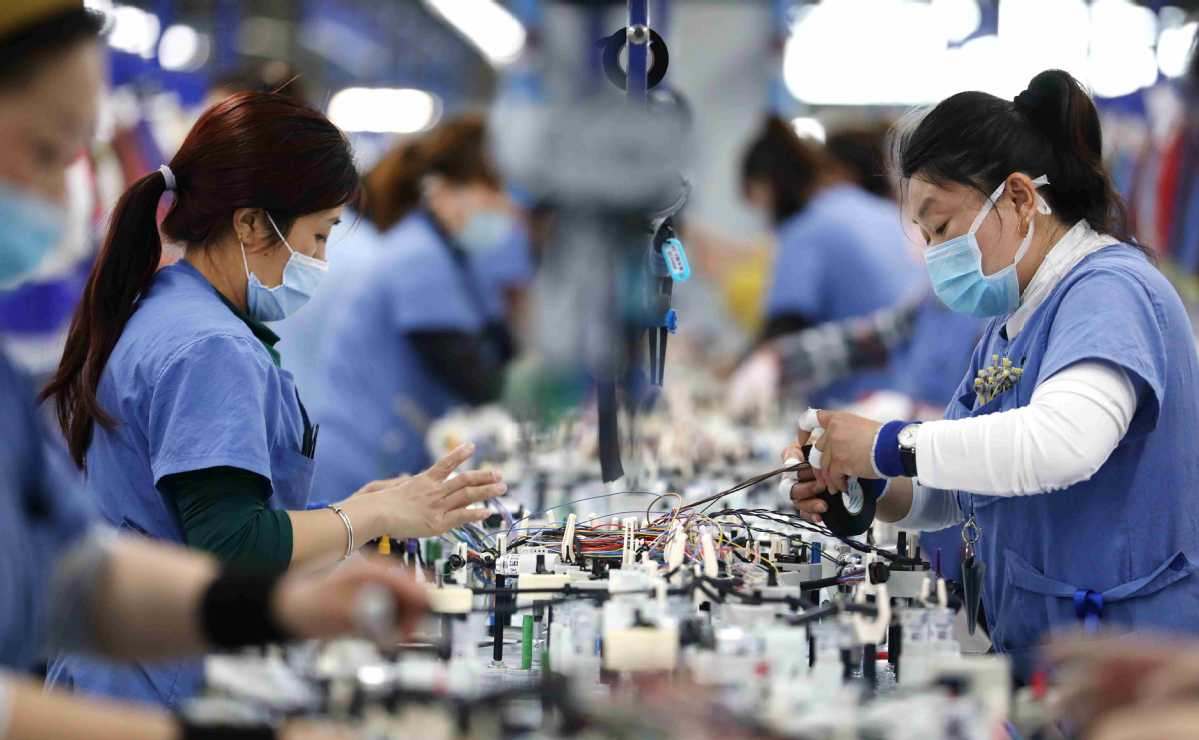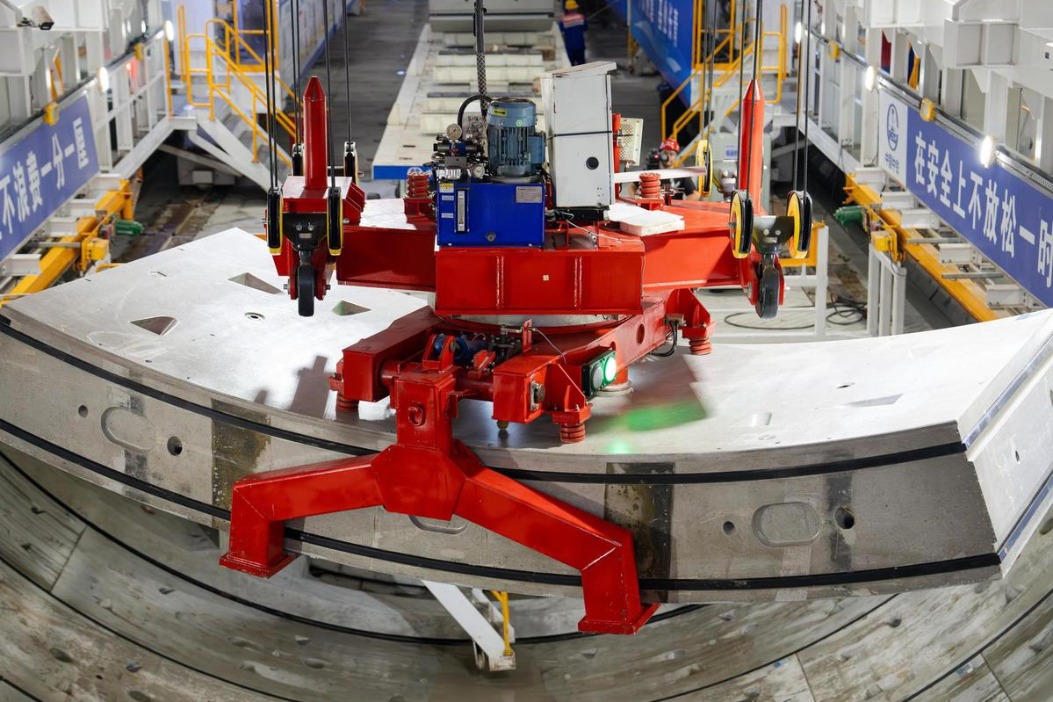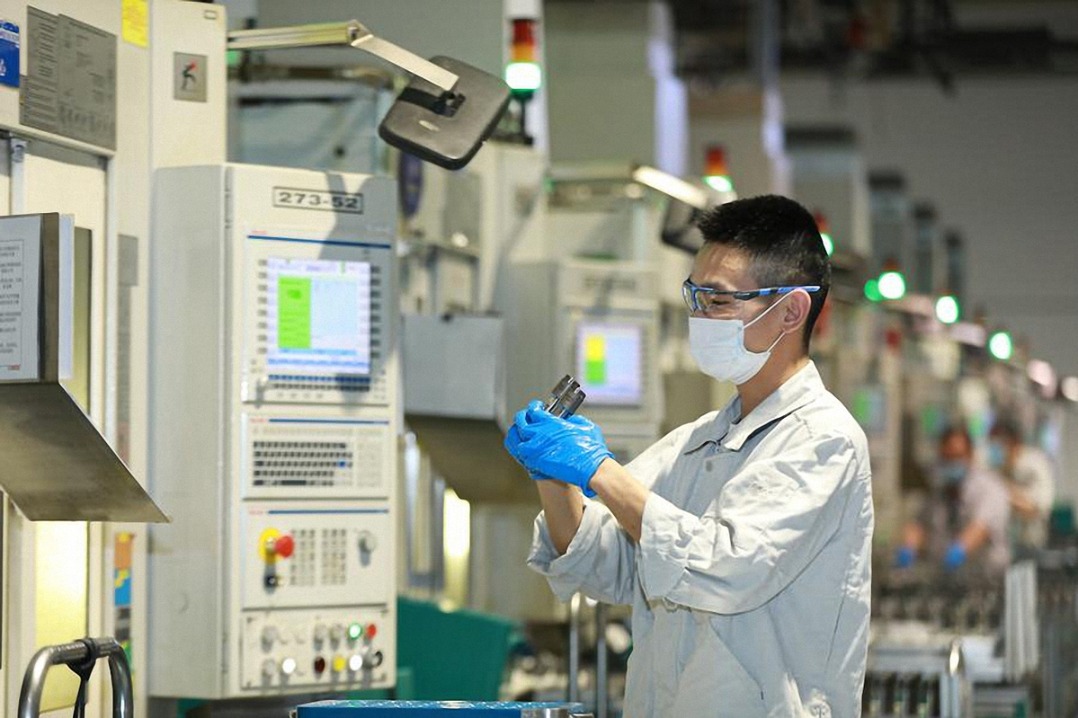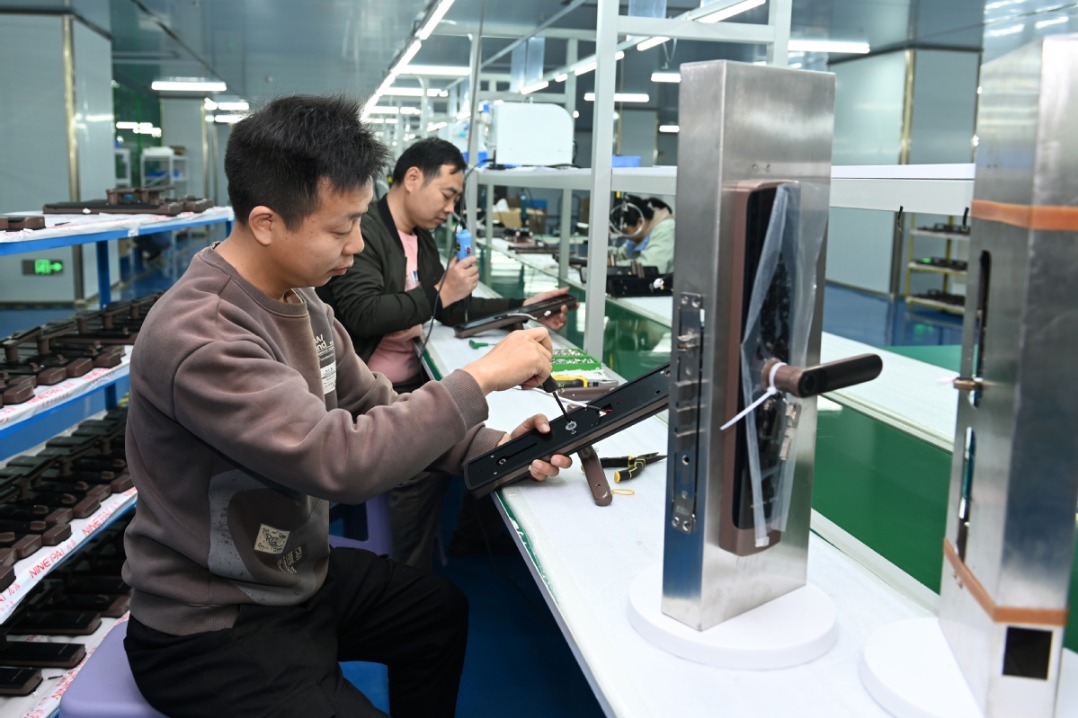Industrial, supply chains to get big boost


More independent, controllable links to guard against risks, aid global economy
Building more independent and controllable industrial and supply chains will help China better cope with short-term risks amid the COVID-19 pandemic and deeply participate in the reconstruction of global supply chains for long-term benefits, experts and company executives said on Monday.
The comments came after the annual tone-setting Central Economic Work Conference, which concluded on Friday in Beijing, outlined key tasks for next year in eight aspects, including efforts to improve industrial and supply chains to create a more independent and controllable position.
Qin Hailin, president of the China Center for Information Industry Development Consultancy, a Beijing-based consultancy, said as the global economy still faces uncertainties amid the pandemic, a more independent, resilient and flexible industrial chain is an important foundation for the growth of China's economy.
"As international situations change and each country places more emphasis on supply chain management, the global industrial chain is being reconstructed, which offers an opportunity for China to better participate in the formulation of international rules," Qin said, adding that better industrial chain structure is also an inherent requirement of China's efforts to move toward high-quality economic development.
Eyeing the weak areas of industries, the conference also said China will ensure the better implementation of key projects targeting breakthroughs in key technologies and solutions to bottleneck problems while encouraging businesses to focus on their areas of strength and forge new cutting-edge technologies.
Like Aobo, executive deputy director of the Academic Center for Chinese Economic Practice and Thinking at Tsinghua University, said improving China's industrial chain is not just to cushion the outbreak's fallout on manufacturing, but a foundation for the nation to better pursue the new dual-circulation development pattern that has the domestic market as the mainstay with the domestic and foreign markets boosting each other.
"The risks of the manufacturing supply chains are mainly derived from the fact that some developed countries aim to contain China's technological development in the face of our economic rise. Such a pattern will not change in the short term," he said.
The United States government, for instance, has put dozens of Chinese tech companies, including Huawei Technologies Co and Semiconductor Manufacturing International Corp, on an entity list, which restricts their access to advanced US technologies such as crucial software and semiconductor equipment.
"This means that the latecomer advantage of leveraging some of the most advanced international technologies to fuel our own rapid development no longer exists. We have to change our mindset and beef up our industrial chain capabilities," he said.
But experts also said that intensified efforts to pursue homegrown breakthroughs in crucial technologies are not the same as seeking self-sufficiency or an isolation from the global supply chain.
"It does not mean to localize all components and technologies. Instead, China only focuses on bolstering its capabilities in key technologies, and more efforts will be made to embrace the globalization of other industrial parts and technologies," Qin, from China Center for Information Industry Development Consultancy, added.
Wang Youxin, a researcher at a research institute of the Bank of China, said more efforts are needed to continue optimizing the business environment, reducing barriers for market entry and attracting the inflow of foreign capital, so as to avoid the disorderly outflow of key links in the industrial chain.
"Cooperative mechanisms can also be established for upstream and downstream enterprises in industrial chains, to ensure the smooth operation of the domestic and foreign companies in China," Wang said.
Zhao Juntao, president of Swedish telecom equipment maker Ericsson's China branch, said earlier this year that before the pandemic, China had already become a crucial node in the global supply chain after 40 years of development.
"The epidemic has once again made us realize how important China's position is," Zhao said, adding that the nation's important role in the global supply chains will continue for a long time for many reasons, including its manufacturing foundation and its market size.
Yang Yuanqing, chairman and CEO of Lenovo Group Ltd, said China already has the world's largest industrial system and efforts to boost the modernization level of industrial chains will help China become a smart manufacturing powerhouse.




































